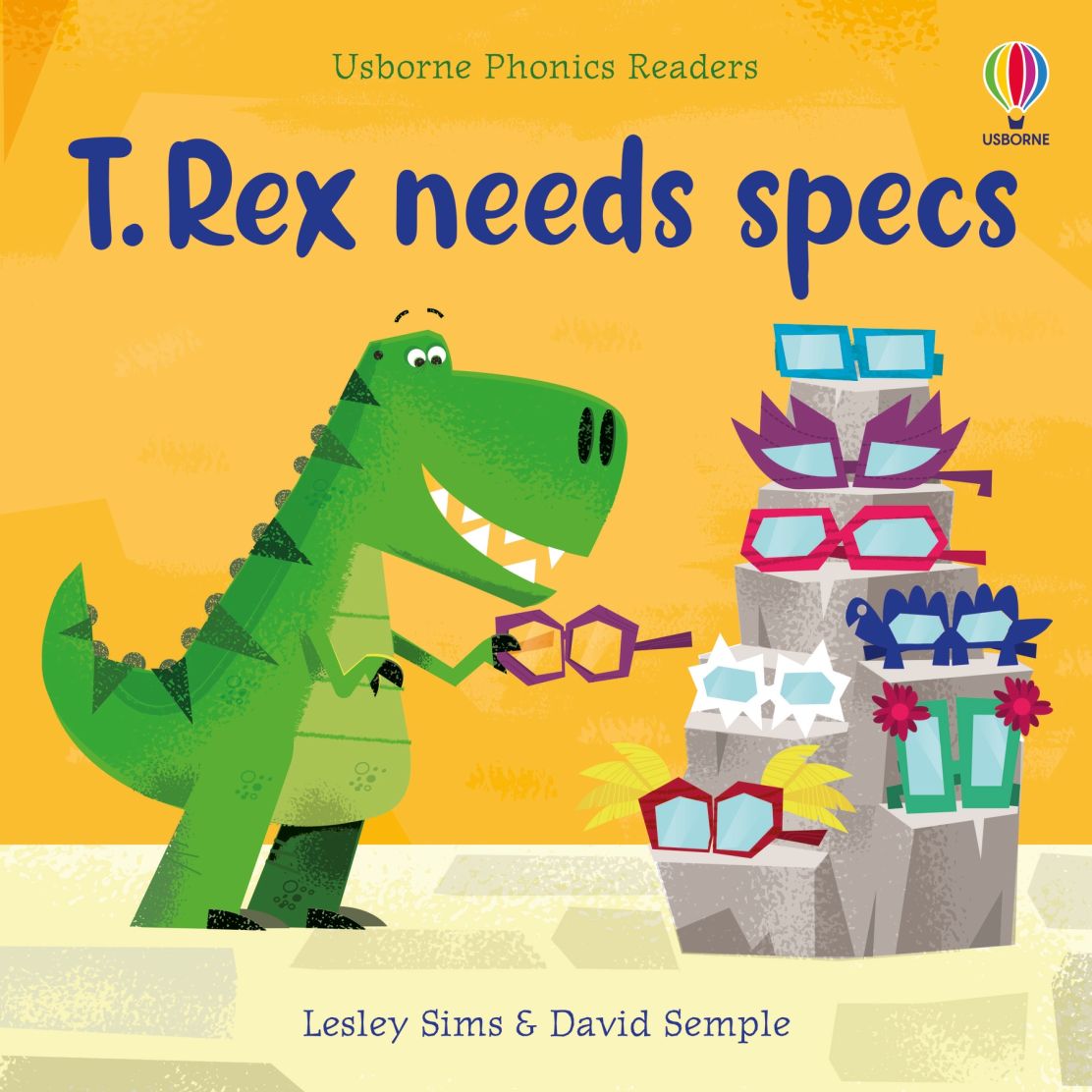As an affiliate, I earn from qualifying purchases, but this doesn't affect the reviews or recommendations—your trust is important to me!
Decodable Chapter Books for Early Readers
As a parent or educator, you understand the immense joy and wonder that comes from watching a child read their first words. It's a milestone that sparks excitement and opens up a world of possibilities. But for some young readers, the journey to literacy can be challenging, filled with frustration and self-doubt. That's where decodable chapter books come in.

Decodable chapter books are specifically designed to support early readers in building their reading confidence. These books are carefully crafted with phonics-based texts that allow children to sound out and decode words. By using decodable words and following phonics patterns, these books provide valuable decoding practice, helping children develop the essential skills they need to become fluent readers.
Key Takeaways:
- Decodable chapter books are essential for early readers to boost their reading confidence.
- These books are designed with phonics-based texts that children can sound out and decode.
- Decodable chapter books provide valuable decoding practice and support reading skill development.
- Children can experience the joy of reading while improving their fluency and comprehension.
- Decodable chapter books are an invaluable resource for fostering a love of reading in young learners.
The Benefits of Decodable Chapter Books
Decodable chapter books offer numerous benefits for early readers. These books are organized by phonics patterns, allowing children to practice specific phonics sounds or spellings. By using words that follow phonics rules, such as consonant-vowel-consonant (CVC) words, young readers can improve their decoding skills and build confidence in reading. Additionally, decodable chapter books often include high frequency words or sight words that are part of early reading instruction. By focusing on phonics-based texts, these books provide a structured and sequential approach to reading instruction, promoting early literacy development (Franklin-Smith, 2021).
| Benefits of Decodable Chapter Books |
|---|
| 1. Improved Decoding Skills: The phonics patterns in decodable chapter books help children practice decoding sounds and spellings, strengthening their reading fluency and accuracy. |
| 2. Enhanced Reading Confidence: When children can successfully decode words in decodable books, they gain confidence in their reading abilities, which motivates them to read more. |
| 3. Structured Reading Instruction: Decodable chapter books provide a structured and sequential approach to teaching reading, following phonics patterns and introducing new skills gradually. |
| 4. Promote Early Literacy Development: By exposing children to phonics-based texts early on, decodable chapter books lay a strong foundation for literacy skills necessary for future reading success. |
Overall, decodable chapter books play a vital role in supporting early readers' journey towards becoming proficient readers. These books offer engaging stories while simultaneously reinforcing phonics knowledge and building essential reading skills.
The Toucan Series: A Set of Decodable Chapter Books for Grades 2-4
The Toucan Series is an exceptional collection of decodable chapter books specially designed for students in grades 2-4. This series consists of six captivating books that are not only beautifully illustrated but also thoughtfully crafted to provide crucial reading opportunities for older learners.
Each book in the Toucan Series is meant to be read in a single sitting, making it an ideal choice for classroom reading sessions or independent reading at home. With a length ranging from 25 to 30 pages, these books offer an immersive reading experience that allows readers to fully engage with the story and characters.
As children progress through the Toucan Series, they will encounter increasingly complex skills, enabling them to further develop their reading abilities. The carefully structured progression offers a gradual increase in difficulty, ensuring that students are appropriately challenged while building their reading confidence.
All books in the Toucan Series include comprehension questions that encourage readers to think critically about the text and enhance their understanding. Additionally, a writing prompt is provided at the end of each book, allowing students to express their thoughts and creatively engage with the story.
For the two non-fiction books in the series, a glossary is included to support students in expanding their vocabulary and comprehension of subject-specific terms and concepts.
Key Features of the Toucan Series:
- A set of six decodable chapter books
- Designed for students in grades 2-4
- Beautiful illustrations and captivating storylines
- Meant to be read in a single sitting
- Length ranging from 25 to 30 pages
- Gradually increasing complexity of skills
- Comprehension questions to enhance understanding
- Writing prompts to encourage creativity
- Glossary provided for non-fiction books
The Toucan Series offers an immersive reading experience and serves as an invaluable resource for promoting reading fluency, comprehension, and vocabulary development in students from grades 2-4. Whether used in the classroom or at home, these decodable chapter books provide essential reading opportunities that empower young readers on their journey to becoming confident and successful readers.
Other Decodable Chapter Book Series
In addition to the Toucan Series, there are several other decodable chapter book series available for early readers. These series provide a sequential and systematic approach to teaching phonics skills and helping children practice decoding in a structured manner. Some popular decodable book series include:
- Bob Books With its simple and engaging stories, the Bob Books series is an excellent choice for early readers. These books introduce phonics concepts gradually and build on previous skills, allowing children to practice decoding words with confidence.
- Usborne Phonics Readers: Usborne Phonics Readers feature vibrant illustrations and engaging stories that reinforce phonics skills. These books are carefully graded and include helpful guidance for parents or teachers to support early reading progress.
"Decodable chapter book series provide young readers with valuable opportunities to practice their phonics skills while enjoying engaging stories. By following a systematic progression, these series support children's early reading development and instill a love for reading."
To explore other decodable chapter book series, visit your local library or bookstore, or check online platforms for available options. With these series, early readers can embark on a journey of literacy and develop their phonics skills in an enjoyable and meaningful way.
| Decodable Book Series | Key Features |
|---|---|
| Penguin Kids | - Phonics-based stories - Progression through phonics skills - Sight word recognition |
| Bob Books | - Simple and engaging stories - Gradual introduction of phonics concepts - Builds reading confidence |
| Usborne Phonics Readers | - Vibrant illustrations - Carefully graded stories - Guidance for parents/teachers |
Additional Resources for Decodable Chapter Books
Aside from decodable chapter book series, there are a variety of resources that can support early reading instruction and help develop phonics skills. Here are some notable resources:
- Decodable Readers: These books are specifically designed to provide targeted practice with phonics skills. They contain controlled vocabulary and use phonics patterns to support young readers in decoding words.
- Phonics Workbooks: Workbooks focused on phonics skills can provide supplemental exercises and activities to reinforce decoding and phonics knowledge.
- Online Phonics Games: Interactive games and activities available on websites or educational apps can engage early readers in phonics practice while making learning enjoyable.
- Phonics Apps: Mobile applications designed for early readers can provide a convenient way to access phonics-based activities and resources on the go.
- Phonics Flashcards: Flashcards featuring phonics patterns, sight words, and high-frequency words can be used for review and reinforcement of phonics skills.
"Utilizing a variety of resources can enhance the effectiveness of early reading instruction and provide ample opportunities for young learners to practice and reinforce their phonics skills."
Remember, the key to successful early reading instruction lies in providing decodable readers and utilizing supplementary resources that promote phonics skills. By combining decodable chapter books with additional resources, educators and parents can create a comprehensive learning experience that supports the development of strong reading foundations.
Comparison of Additional Resources
| Resource | Description |
|---|---|
| Decodable Readers | Designed with specific phonics patterns, these readers provide targeted practice for decoding and phonics skills. |
| Phonics Workbooks | Workbooks filled with exercises and activities that reinforce decoding and phonics knowledge. |
| Online Phonics Games | Interactive games and activities on educational websites or apps that make phonics practice enjoyable. |
| Phonics Apps | Mobile applications that offer phonics-based activities and resources for convenient, on-the-go learning. |
| Phonics Flashcards | Flashcards featuring phonics patterns, sight words, and high-frequency words for review and reinforcement. |
The Importance of Explicit Phonics Instruction
Research has consistently shown that explicit phonics instruction plays a vital role in developing strong reading skills. By teaching children the relationship between sounds and letters, explicit phonics instruction enables them to accurately decode words, leading to improved reading fluency and comprehension. To effectively teach phonics, it is essential to follow a sequential approach that introduces concepts in a logical order. This systematic progression allows children to build upon previously learned skills, reinforcing their understanding and mastery of phonics principles. By implementing explicit and sequential phonics instruction, educators provide students with the foundation they need to become proficient readers.
One effective way to enhance knowledge on explicit phonics instruction is through educational podcasts. The "Sold a Story" podcast offers valuable insights into the Science of Reading and evidence-based practices for phonics instruction. Listening to expert educators and researchers discuss phonics strategies can provide educators with practical tips and resources to implement in their classrooms.
"Explicit phonics instruction provides a structured and systematic approach to teaching children how to decode words accurately, enabling them to become proficient readers."
In addition to teaching children how to decode words, explicit phonics instruction fosters a deeper understanding of the English language by highlighting the rules and patterns that govern its use. This knowledge not only improves reading skills but also enhances spelling and vocabulary development. By explicitly teaching phonics, educators equip students with the tools they need to decode unfamiliar words independently, empowering them to tackle more complex texts with confidence.
Benefits of Explicit Phonics Instruction
Explicit phonics instruction offers several key benefits for students:
- Improved decoding skills: By explicitly teaching phonics rules and patterns, students become proficient at decoding words accurately, leading to improved reading fluency.
- Enhanced reading comprehension: Understanding the relationship between sounds and letters allows students to make meaningful connections between words and their meanings, improving overall reading comprehension.
- Stronger spelling abilities: Phonics instruction helps students develop spelling skills by providing them with the tools to break words down into their individual sounds and spellings.
- Expanded vocabulary: Through phonics instruction, students gain the ability to decode unfamiliar words, expanding their vocabulary and enabling them to understand a wider range of texts.
By prioritizing explicit phonics instruction in the classroom, educators can effectively support students in developing strong reading skills and fostering a lifelong love for reading.
Note: The image above illustrates the importance of explicit phonics instruction in building reading skills.
Building Reading Skills with Phonics-Based Instruction
Phonics-based instruction is a vital component in developing strong reading skills. By teaching emerging readers phonics skills and the knowledge of letter sounds, known as decoding, educators lay the foundation for successful reading development.
This systematic and structured approach to teaching phonics provides children with the tools they need to decode words, leading to improved reading fluency and comprehension. Phonics-based instruction focuses on the relationship between sounds and letters, enabling young learners to apply this knowledge when reading and understanding texts.
Research-based programs, like READING SIMPLIFIED, offer effective and manageable strategies for teaching phonics skills to emerging readers. These programs emphasize the importance of explicit phonics instruction and provide teachers with specific techniques to engage students in decoding practice while fostering reading growth. With a focus on phonics-based instruction, educators can help young learners develop strong reading foundations and unlock the joy of reading.
"Phonics-based instruction provides children with the tools they need to decode words, leading to improved reading fluency and comprehension."
The Difference Between Predictable and Decodable Books
When it comes to reading instruction, it's essential to understand the difference between predictable books and decodable books. While both types of books play a role in supporting children's early reading experiences, they offer distinct approaches to literacy development.
Predictable Books
Predictable books often rely on repetitive patterns and familiar storylines to engage young readers. These books aim to create a sense of familiarity and confidence as children predict what will happen next. By using repetitive phrases or predictable text structures, these books help children develop reading fluency and reinforce story comprehension.
"The sun is shining. It is a beautiful day."
For example, a predictable book might include a repeated phrase like, "The sun is shining. It is a beautiful day." This repetition allows children to anticipate and join in with the reading, enhancing their overall reading experience.
Decodable Books
Decodable books, on the other hand, are specifically designed to reinforce phonics rules and support the development of decoding skills. These books are organized by phonics patterns, using words that follow specific phonics rules and incorporating high frequency sight words.
Table: Key Differences Between Predictable and Decodable Chapter Books
| Predictable Books | Decodable Books |
|---|---|
| Rely on repetitive patterns and familiar storylines | Reinforce phonics rules and provide decoding practice |
| Support reading fluency and story comprehension | Develop decoding skills and build reading confidence |
| Emphasize prediction and familiarity | Focus on phonics-based instruction and word decoding |
Decodable books offer a structured approach to reading instruction, guiding children through phonics patterns and providing opportunities for decoding practice. By using words that follow phonics rules, these books allow children to apply their phonics knowledge and skills in a meaningful way, building their reading confidence and fluency.
Decodable books provide a stepping stone for children to become independent readers by reinforcing phonics skills and introducing new words in a controlled manner.
While predictable books can foster a love for reading and enhance comprehension skills through their engaging storylines, decodable books are crucial for developing strong foundational reading skills. These books target specific phonics patterns and support children in mastering the sound-letter relationships that are vital for reading success.
By incorporating both predictable and decodable books into reading instruction, educators and parents can create a balanced approach that addresses various aspects of early literacy development, including fluency, comprehension, and phonics skills.
Conclusion
Decodable chapter books are invaluable resources for early readers as they promote early literacy, boost reading confidence, and provide opportunities for decoding practice. These books utilize phonics-based texts and follow a sequential approach, which helps young learners develop strong reading foundations.
With decodable chapter books, educators and parents have a wide range of options to enhance early reading instruction and help children unlock the joy of reading. They can choose from various decodable book series and supplementary resources, tailoring their approach to meet the needs of individual learners.
By providing the right tools and strategies, decodable chapter books empower children to become proficient readers who are ready to explore a world of interesting and engaging books. Through careful selection and implementation of these resources, young readers can build essential skills, improve fluency, and develop a lifelong love for reading.
FAQ
What are decodable chapter books?
Decodable chapter books are specifically designed books with phonics-based texts that young readers can sound out and decode. They use words that follow phonics rules, such as consonant-vowel-consonant (CVC) words, and help children improve their decoding skills and build reading confidence.
What are the benefits of decodable chapter books?
Decodable chapter books offer numerous benefits for early readers. They provide valuable decoding practice, improve reading fluency and comprehension, and help children develop early literacy skills. These books focus on phonics patterns and provide a structured and sequential approach to reading instruction.
Are there other decodable chapter book series available?
Yes, there are several other decodable chapter book series available for early readers. These series provide a sequential and systematic approach to teaching phonics skills and helping children practice decoding in a structured manner. Some popular series include [add series names here].
Are there additional resources for decodable chapter books?
Yes, there are various resources available to support early reading instruction and provide practice with phonics skills. Some notable resources include [add resource names here]. These resources can further enhance phonics instruction and help children develop strong reading foundations.
Why is explicit phonics instruction important?
Research indicates that explicit phonics instruction is crucial for developing strong reading skills. Phonics instruction teaches children the relationship between sounds and letters, enabling them to accurately decode words. Implementing evidence-based practices and following a sequential approach helps children become proficient readers.
How does phonics-based instruction build reading skills?
Phonics-based instruction provides a systematic and structured approach to teaching children how to decode words. By teaching emerging readers phonics skills and knowledge of letter sounds, phonics instruction improves their ability to read and comprehend texts, building strong reading foundations.
What is the difference between predictable and decodable books?
Predictable books often rely on repetitive patterns and familiar storylines, while decodable books explicitly focus on phonics skills. Decodable books are organized by phonics patterns and use words that follow phonics rules, providing a structured approach to reading instruction and helping children develop their decoding skills and reading confidence.























